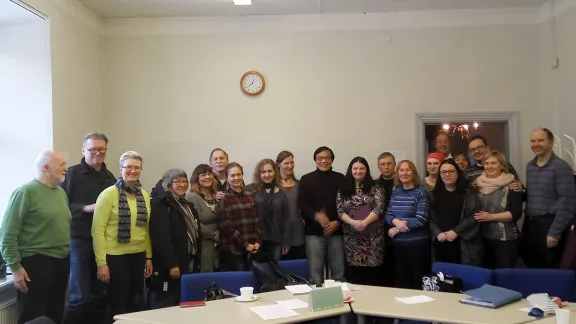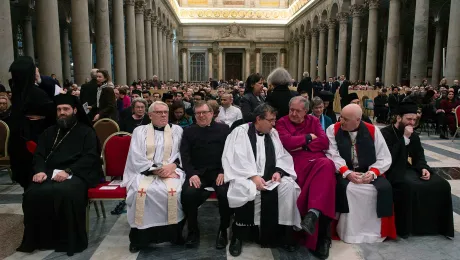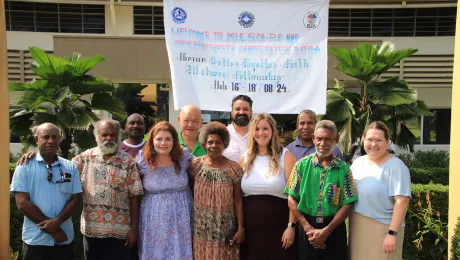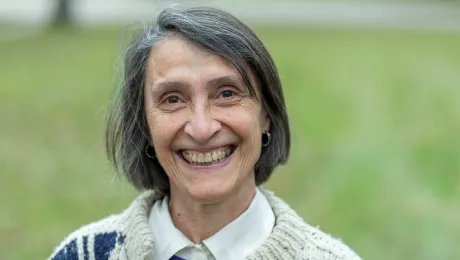
Diaconal workers in churches and their institutions across Europe have gained a deeper understanding of the art and practice of living together. Participants in the February 2016 workshop in Tallinn, Estonia. Photo: LWF
Czech diaconal worker Janka Adameova, says that through the LWF Conviviality process, she has learnt how important it is to be rooted in values that seem fragile by today's standards.
Since 2011, conviviality - which we define as the art and practice of living together - has become a core concept for community diakonia among The Lutheran World Federation member churches, their institutions and communities in Europe.
The deeper understanding of the “art and practice of living together” has facilitated reflection processes and clarified the concrete implications for action in the diverse living and working contexts of the European churches and their social service delivery institutions.
By understanding the art and practice of living together, we have facilitated reflection and clarified ways to take action in the diverse living and working contexts of European churches and their social service agencies.
Our recent 2016 workshop in Tallinn, Estonia, was a combination of reflective discussions, and non-formal learning with creative imagination that is linked to practice. We carried out this reflection and learning, in light of different aspects of living and acting together in community.
The event also created space to evaluate the journey of ourthe so-called Solidarity Group, which coordinates the sharing of practices by diaconal actors in Europe. Participants were asked to imagine taking a sailing trip around islands which stood for different outcomes - people and networking, experience, knowledge, and visible products, such as publications.
Space for talents and gifts
During the city visits, I was very impressed with the living conviviality of a newly founded community church in one of the neighborhoods. I became even more impressed when I heard the story of diaconal worker Rev. Avo Uprus, whose unquestionable trust in God convinced him to buy the church building and to create from it a place that transforms people’s lives.
Today, the Peeteli congregation of the Estonian Evangelical Lutheran Church offers meals to school-age children and space where they can play, as well as opportunities for employment, opening up a chance for people in need to put their talents and gifts into action.
Meetings are one part of the process, but our work is a continuous activity. I would like to follow the ‘dream islands’ sailed by our group members.
My great wish is to become as active and alive as the people who bring change in other people’s lives and in the wider world through their everyday work. Another goal is to fulfill the dreams of greater conviviality through our own example in the training events and pedagogical processes that we, as International Academy for Diakonia and Social Action, plan in the coming years.
Last but not least, I would like to see the impact of conviviality included in the institutional structures which have decision-making power.
I have learnt how important it is to be rooted in values that may seem fragile in today’s contexts, with both higher levels of prosperity and poverty. Situations such as the wave of migrants and refugees seeking safety in our countries are an opportunity to offer hope, when it may seem fragile. In this way, we allow the Spirit of new life and joy flow.
Janka Adameova is manager of the International Academy for Diakonia and Social Action (interdiac) based in Český Těšín, Czech Republic. The non-profit educational organization promotes learning, networking, research and development for social action in central and eastern Europe. The outcomes of the conviviality project outcomes will be part of the contribution of the European churches to the LWF Assembly and the 500th Reformation anniversary in 2017.


